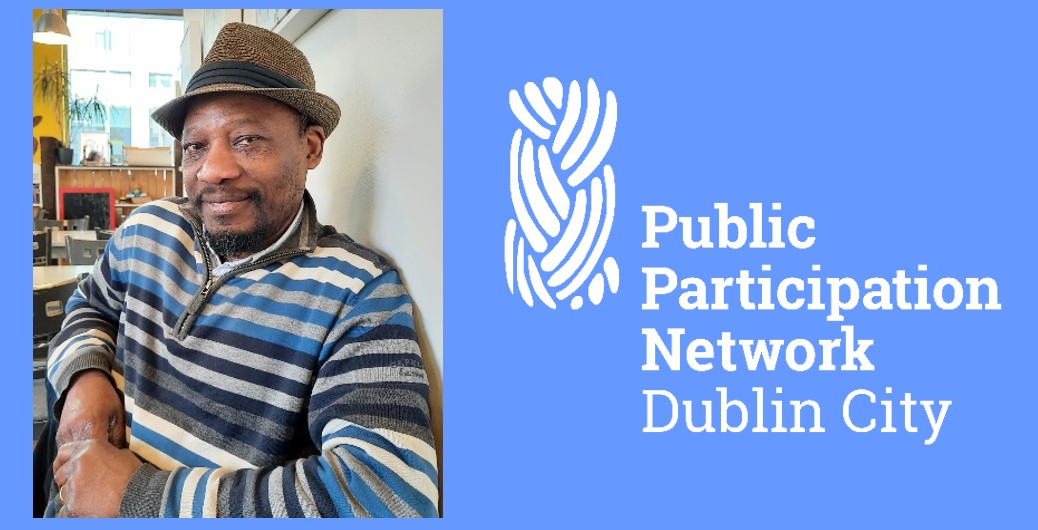Profile
Adekunle Gomez is the secretary and programme director of the African Cultural Project (also known as, The Africa Institute in Ireland). The main objective of the African Cultural Project is to provide information on Africa to the Irish public. Through the facilitation of cultural and educational events featuring Africa’s rich and diverse cultural traditions, the project aims to promote an understanding of the African continent and of the countries and people of Africa. The African Cultural Project has collaborated with a variety of institutions throughout the years including the National Concert Hall, the Chester Beatty Library, the Irish Writers’ Centre, the Public Library system, Local Authority Arts Officers, Alliance Française Dublin, University Language departments, and others.
When did your organization/group join the PPN?
African Cultural Project has been an active member of the Dublin City community since joining the Council’s community forum in 1999. It continued this participation by joining Dublin City PPN in 2017.
What was your main reason for joining the PPN?
According to Adekunle, some of the main reasons that the African Cultural Project joined Dublin City PPN were to have a voice in local government, to network with other community groups, and to share promotional messages with the wider voluntary community.
Have you or other members of your organization/group ever been a member of the Secretariat or been elected as a representative?
In 2019 Adekunle Gomez was nominated as a representative on the Arts, Culture, Leisure, and Recreation Strategic Policy Committee (SPC). The following areas fallunder theresponsibility of the Arts, Culture, Leisure, and Recreation SPC: Events & Festivals; Libraries; Archives; Museums; Galleries; Arts; Parks and Open Spaces; Casual trading; Control of Horses & Dogs; School Meals; Sports and Recreation Centres; Sports Development.
How often would you normally engage with the PPN in a week/month/year?
As a representative on an SPC, Adekunle attends a minimum of five meetings a year, normally held every two months. He is also a member of Dublin City PPN’s Migrant Thematic group. This group was created in 2021 as a space where migrants can meet and discuss the PPN, and how they can become more involved in committee work and PPN activities. The migrant thematic group had their first in-person meeting in January 2023 which Adekunle attended and since then he has been in contact with the group either in person or online multiple times. Throughout the year, he also attends other events and training workshops organised by the PPN and its members.
How do you report back to your group or organization with updates on PPN proceedings?
After attending SPC meetings, Adekunle reports back to the African Cultural Project’s board of members with updates and information relevant to the organisation.
Has the PPN assisted your group in the development of any projects or initiatives? If so, can you explain?
Adekunle explained that being a member of the PPN has allowed the African Cultural Project to make new contacts and network which has helped to spread awareness of their work. Moreover, through participation in the Arts, Culture, Leisure, and Recreation SPC, Adekunle was able to connect with other arts organisations to collaborate on certain projects. By attending training events, he was also able to gain valuable information such as fundraising tips and how to be an effective representative.
What advice would you give other community groups in getting involved with the PPN?
Adekunle recommended that any current or prospective members of the PPN try to make the most of being a part of a PPN. It is a great way to get in involved in your local area and it provides an opportunity to influence local decision-making and to form connections with other members of the voluntary sector. He noted that membership in any community organisation or network will not always be easy, there will be times when outcomes might not be as expected but it is important to not let disappointment discourage you. He ended by saying, ‘Work with what you have and build upon it’.
